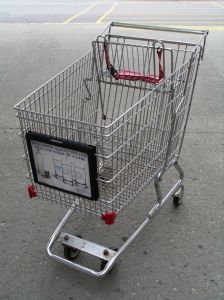In violation of state labor regulations, Rite-Aid is facing a class-action lawsuit for failing to provide its cashiers with seats. Though the trial court initially decertified the class of employees, the Fourth District Court of Appeal has reopened the case, reversing the previous decertification erroneous for considering merits of claim rather than the appropriateness of a class remedy. The class-representative plaintiff was an employee at Rite Aid in San Diego, who alleged that the company violated an Industrial Welfare Commission Regulation that requires employees be provided with seats when the nature of work reasonably permits.
 When a company is in violation of state or federal labor regulations, employees can take legal action. In many of these cases, class-actions are a viable way to obtain justice and remedies for a large number of employees. Our Orange County employment attorneys are dedicated to protecting the rights of workers throughout California. In addition cases involving labor laws, we are also prepared to take cases involving sexual harassment, discrimination, and wage and hour violations. Employment cases can be complex, so it is important to consult with an experienced advocate to ensure the best possible outcome in your case.
When a company is in violation of state or federal labor regulations, employees can take legal action. In many of these cases, class-actions are a viable way to obtain justice and remedies for a large number of employees. Our Orange County employment attorneys are dedicated to protecting the rights of workers throughout California. In addition cases involving labor laws, we are also prepared to take cases involving sexual harassment, discrimination, and wage and hour violations. Employment cases can be complex, so it is important to consult with an experienced advocate to ensure the best possible outcome in your case.
According to the Fourth District Court of Appeals May 2 publication, the class certification was initially denied as a result of the company’s objection that the individual circumstances would dominate the case. When pursuing a class-action lawsuit, it is necessary that members of the class are similarly situated and that the facts of the case are the same for each plaintiff. The Rite Aid defense attorneys alleged that the class representative did not represent all members of the class because each store had varying requirements for each cashier and clerk.
Rite Aid asserted that some class members may be in a reasonable position to have a chair, others have significant time away from the check-out stand. To decertify the class, the defense also argued that cashiers are only behind the desk 42% of the time and are required to perform other duties stocking and retrieving controlled items, such as liquor or tobacco. Before trial, the judge granted Rite Aid’s motion to decertify the class, concluding that individual issues would determine whether the job reasonably permitted the use of a seat.
The Court of Appeals disagreed, finding that reliance on merits of the claim were not relevant to determine class certification. The judge articulated that Rite Aid had a uniform policy that did not allow cashiers to sit and did not provide seats for cashiers. The theory of liability is that the company is unlawful for violating the IWC labor law which mandates reasonable seats when nature of the work permits the use of those seats. According to the Court of Appeals decision, the case still hinges on finding of common facts for all cashiers and clerks. The case may or may not go to trial as a class action. It is possible that the case could be dropped on summary judgment if Rite Aid makes a motion. It is also possible that the judge or the jury could decertify the class status for other reasons.
Employment lawsuits can be filed with assistance from the Nassiri Law Group, practicing in Los Angeles, Riverside, and Orange County. Call 949.375.4734.
More Blog Entries:
California Worker Wins Wrongful Termination Lawsuit, January 1, 2014, Los Angeles Employment Lawyer Blog
LGBT Workplace Discrimination Statistics, December 30, 2013, Los Angeles Employment Lawyer Blog
 Orange County Employment Lawyers Blog
Orange County Employment Lawyers Blog

